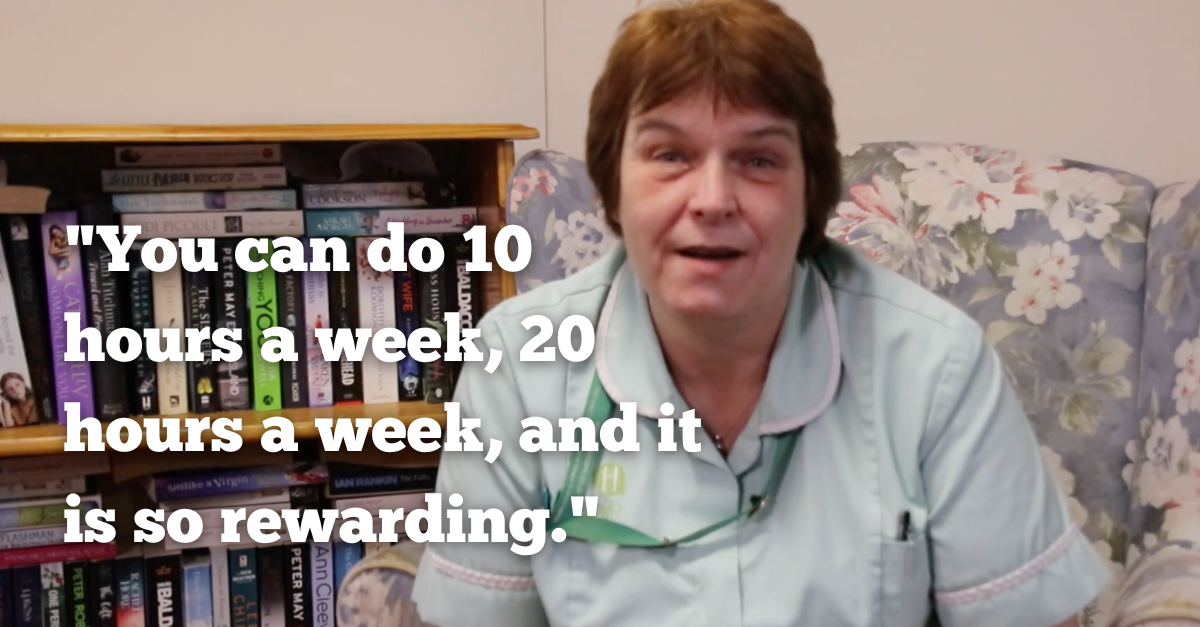Benefits of Working in Care Later in Life
07 November | By Irene Amarante

Working in care, not only gives you the opportunity to make a living by caring for those who need it most, but enables you to make a difference to the lives of the people you care for every single day.
Working is a regular part of daily life for older adults. In fact, according to recent statistics those aged 65 or over in work have more than doubled since the early 1990s. Care is now becoming an increasingly popular option for older adults, who are either searching for a new career or looking to get back into work. According to a poll of 2000 people (all at least 66 years old), 6% are likely to come out of retirement to top up their pension pot or help pay the bills.
In this blog, we’ll be looking at some of the biggest benefits of beginning a career in care later on in life.
Advantages of Working at a Later Age
For most, income is the major motivator of working in later life, but that’s not to say whatever job you choose can’t be a reward in itself. If you’re still feeling good, enjoying your work and want to keep going, then there’s still many advantages to continuing in employment, such as:
– Mental stimulation
– Daily structure
– Social connections
– A sense of purpose
Younger employees, particularly in a care environment, will also benefit from older employees who have a wide range of experiences and skills they can bring to what can be a highly pressured environment.
As Nicola, a Team Leader in the Hales Swaffham branch says “Age is not a barrier in starting a career in care. As long as you’re physically able, you can do the job without a problem.”
If you’re looking for a highly rewarding job where you can continue to work and feel as though you’re giving something back to the community, then care is ideal for you, and in this next section we’ll be looking at the benefits of working in the care sector.
#1: Job Satisfaction
Job satisfaction is a major factor in the way someone works. If you’re not finding satisfaction in what you’re doing, it’s far less likely that you’ll be fully motivated to give it your all every day.
Job satisfaction can be defined by how well you’re treated and the atmosphere amongst your colleagues. When job satisfaction is low, it’s often the case that the mood is flat and staff turnover is high.
In a care setting, the sense of satisfaction from knowing that you’re making a difference to someone’s life, along with the gratitude of the service users and their families and the team ethic around you is what makes care such a fantastic environment to continue your career.
As one of our care workers, Valerie, put it in a recent interview, “working in care has made me realise how lonely elderly people can get. And they really look forward to our visits, because sometimes they’re not seeing someone from one day to the next.”
#2: A Rewarding Career
Although caring for someone is by no means an easy task, it is a very rewarding experience.
Even helping someone with the simplest of tasks may not seem life changing but working in care means that you’re improving the quality of life for those in society that need the most support, which is incredibly rewarding and fulfilling.
“Sometimes the job is mentally demanding, but it’s the smiles and thank you’s and the end of each day that makes it worthwhile,” says Wendy, a Quality Assurance Officer at the Hales Swaffham branch.
#3: No Two Days Are the Same
A career working in care creates countless opportunities for friendships and experiences that may not otherwise have been available to you.
Every resident has different backgrounds and life experiences, which gives you the opportunity to talk and learn from people who have seen the world in a different way.
Not two days will ever be the same if you choose to work in care.
#4: Flexibility
Care is constant and is needed around the clock, so there is plenty of room for flexibility when it comes to when and how you work. This can be particularly crucial if you have older relatives, or grandchildren that you also care for, and you can arrange your work around your personal responsibilities.
Although it’s true to say that being a care worker is incredibly rewarding, it’s also hard work, which is why the personal lives of employees is a top priority for care providers.
As Nicola says, “The management at Hales are really supportive, especially given what has happened with COVID. They’re happy to swap your shifts around if you’re having family problems to help you out in that way.”
#5: Training & Development
Although you might be coming to care later on in life, there’s still plenty of opportunity to enhance your knowledge and skills.
Quite often a career in care doesn’t require previous experience or qualifications. A robust training programme will be arranged for you before you start at work, giving you the confidence to deliver top quality care.
Being a care worker is mostly about having the right temperament and personality. For example, if you’re a naturally caring and empathetic person, who is willing to get stuck in and help out where necessary, then you’re ideally suited to a career in care, no matter your age.
“You can do ten or twenty hours a week, and it’s so rewarding. Please try it.” Says Wendy.
No matter your age, Hales has a variety of fantastic opportunities to help you continue your career and grow, while making fantastic connections with people you wouldn’t normally have the chance to get to know.
If you think a career in care is right for you, take a look at our jobs page for our latest vacancies.

















